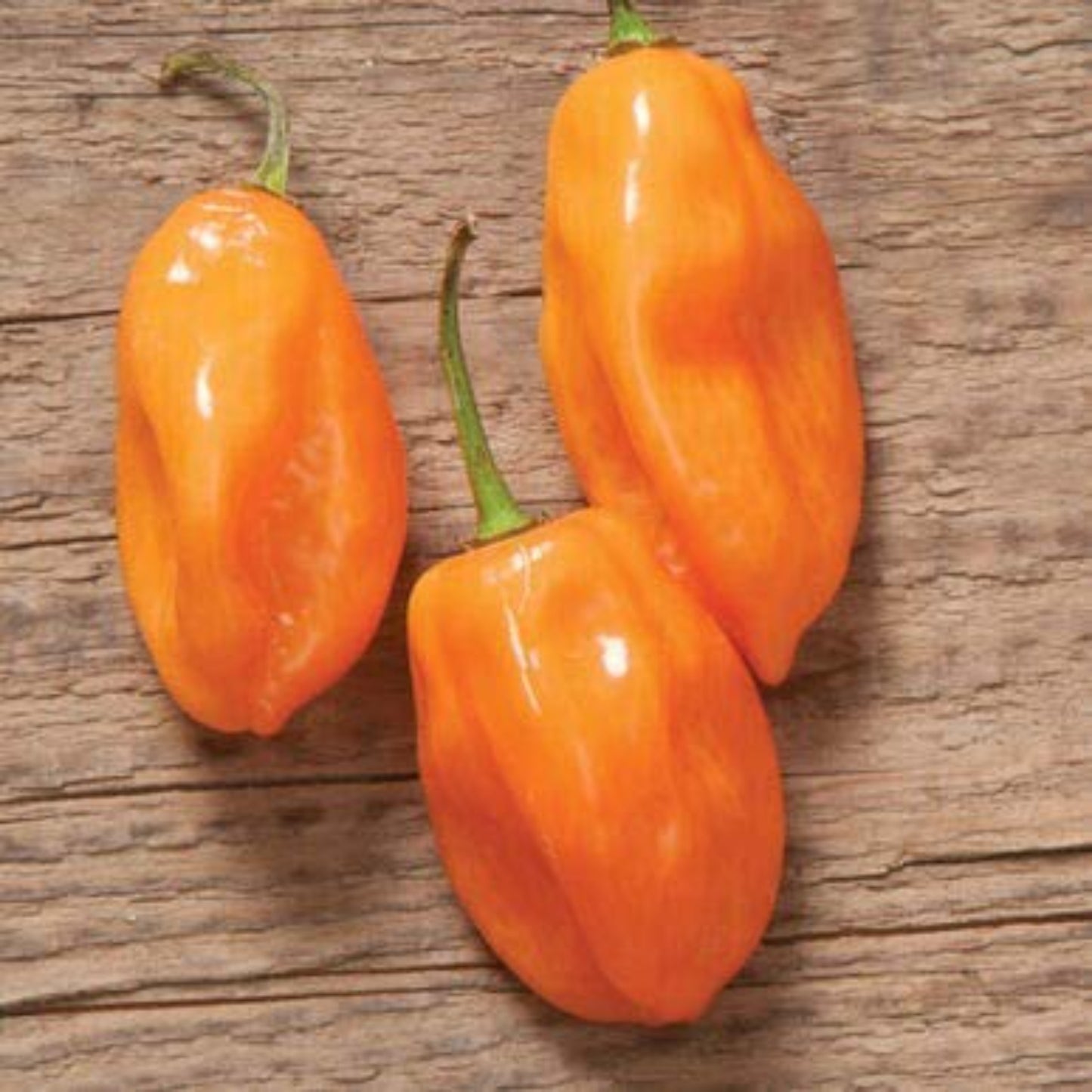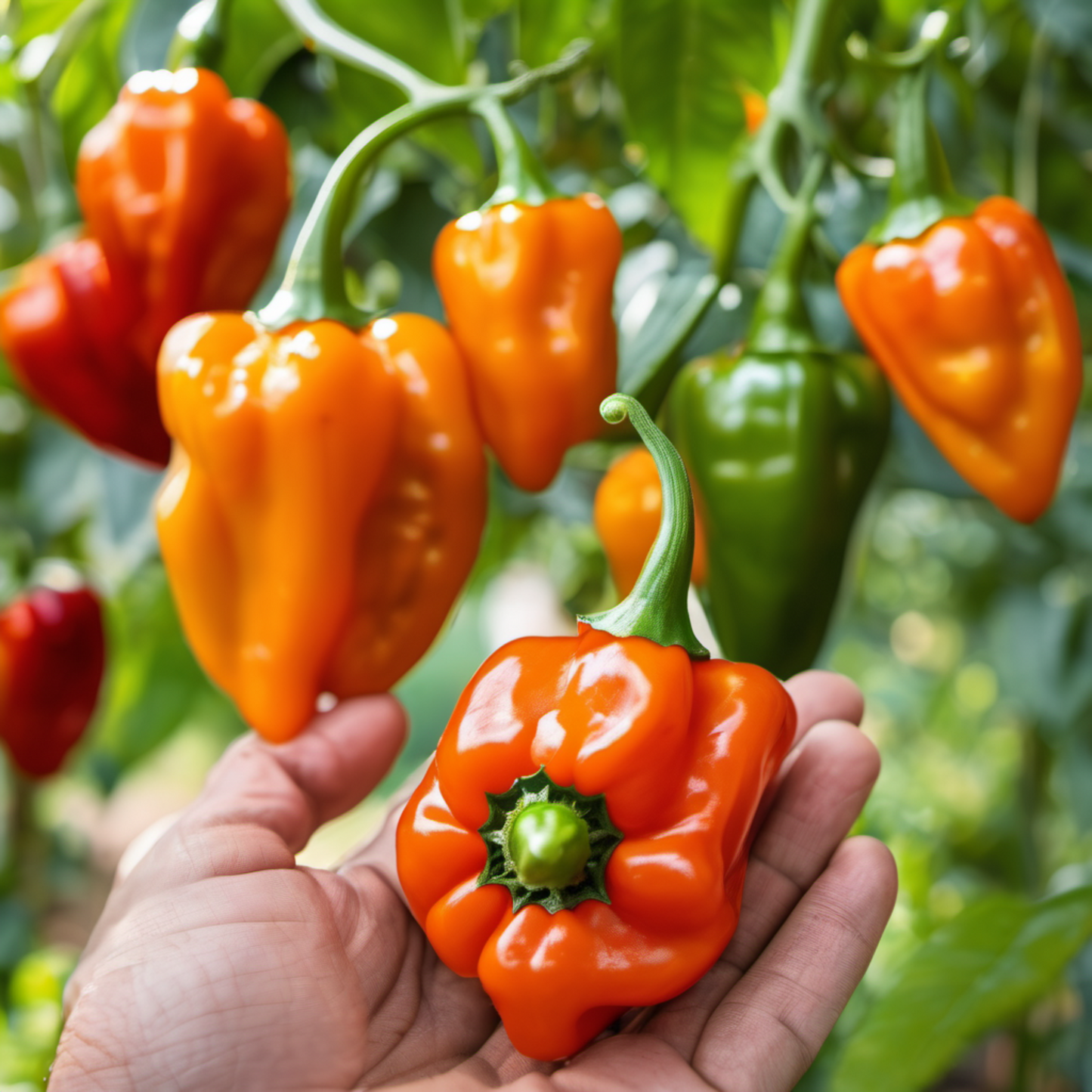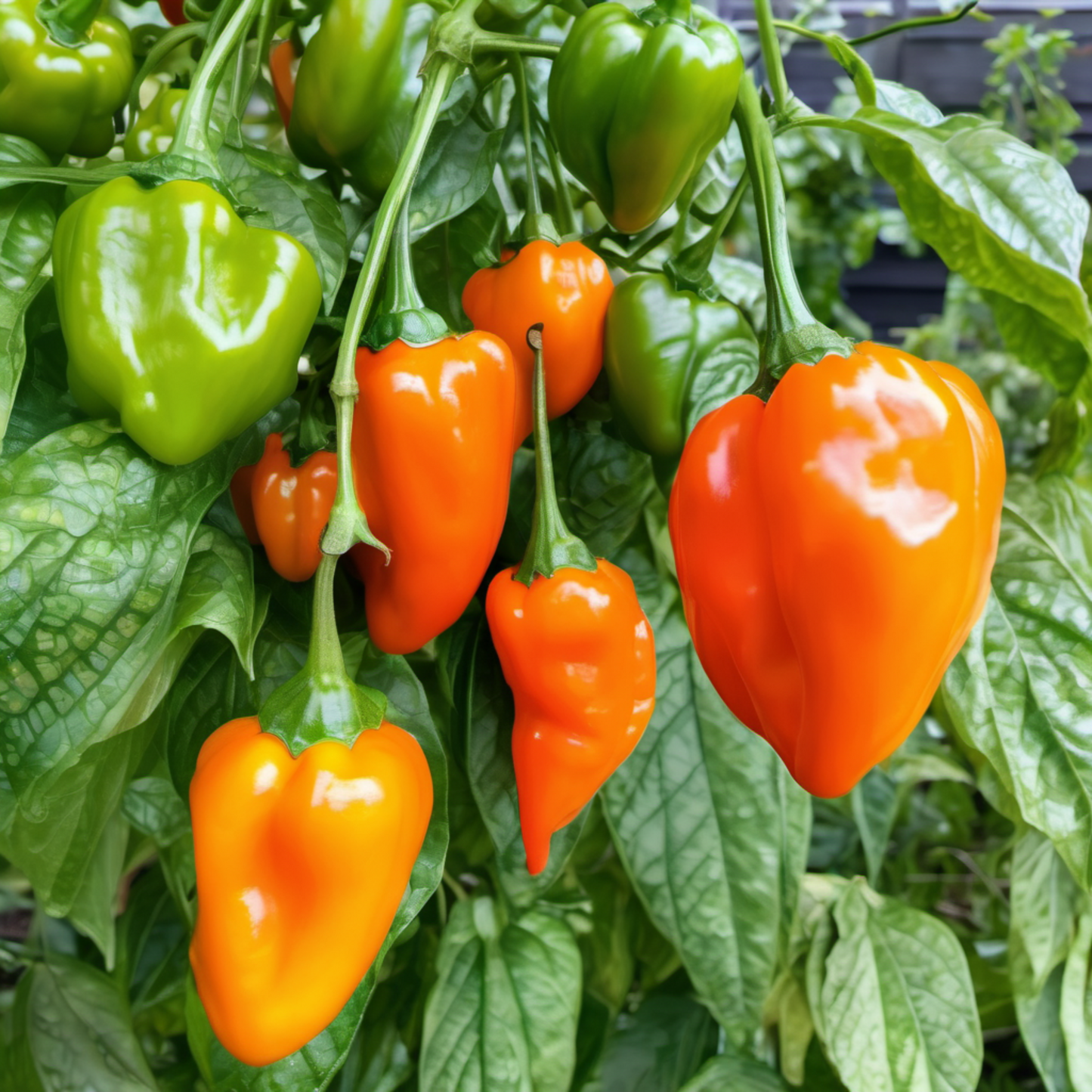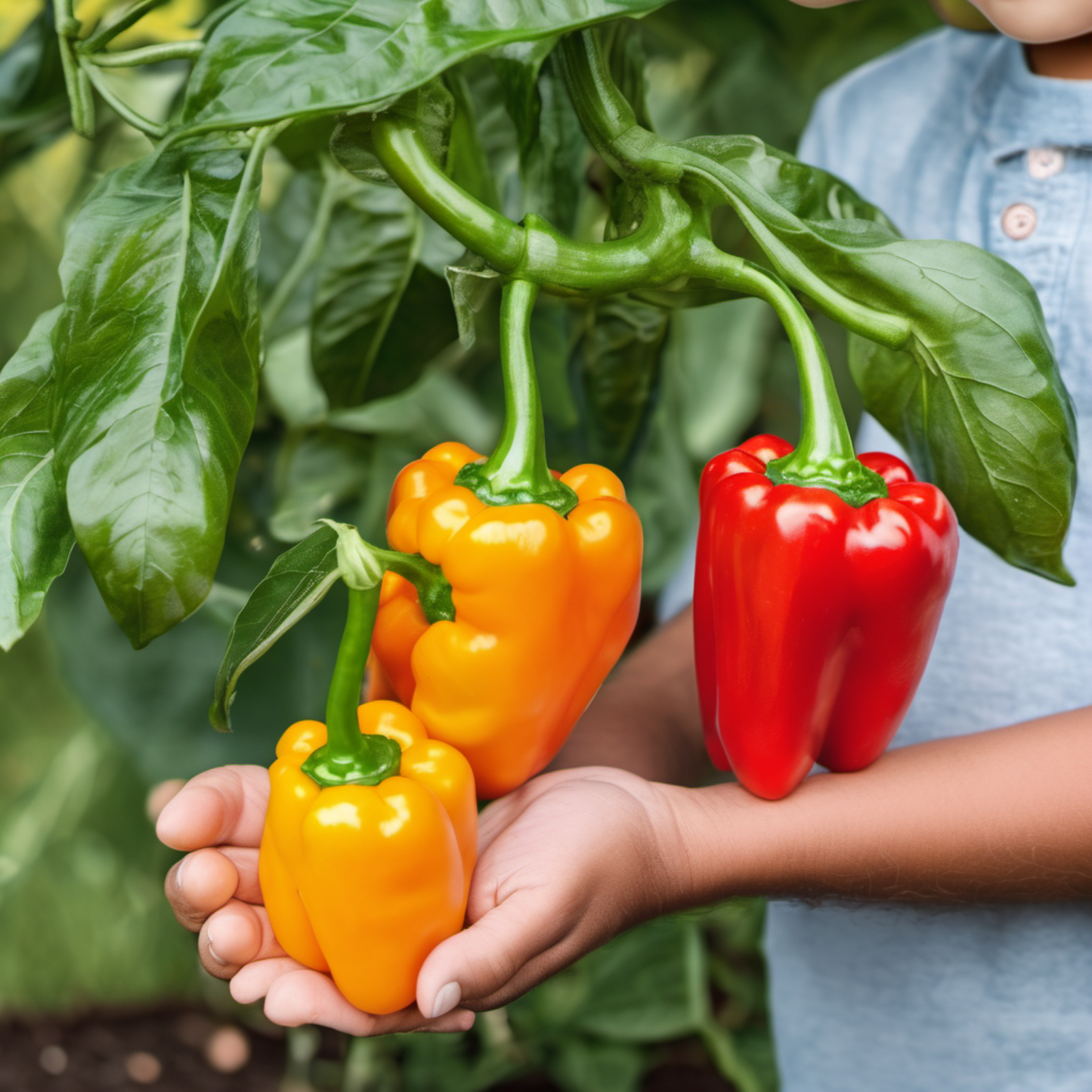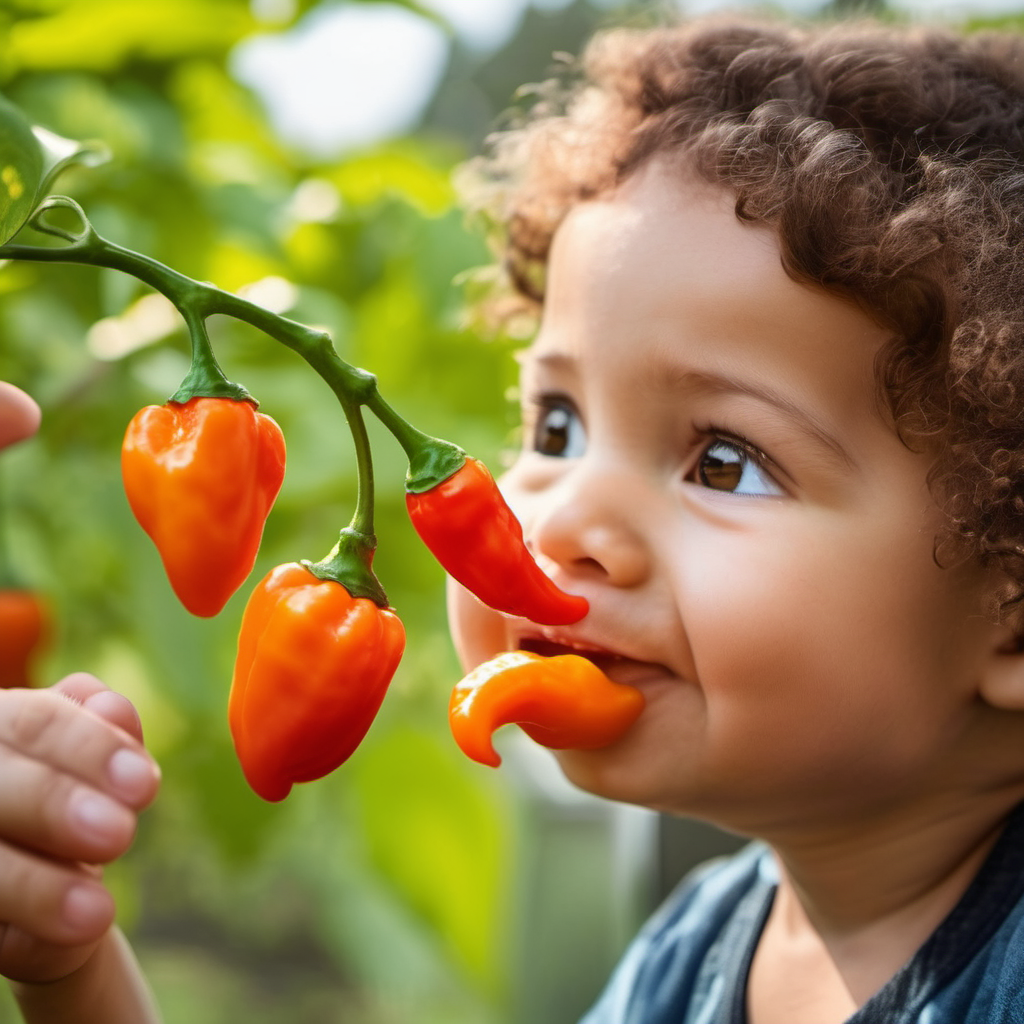JNB Seed
Habanero Pepper Seed
Habanero Pepper Seed
Couldn't load pickup availability
Habanero peppers, renowned for their extreme heat, are commonly incorporated into Caribbean and Latin American cuisine due to their vibrant orange hue and distinctive smoky, fruity flavor profile.
Intense Flavor & Heat - Habaneros boast a remarkable heat level, ranging from 100,000 to 350,000 Scoville units, alongside a delightful fruity taste that complements various dishes originating from the Caribbean and Latin America.
Abundant Yielding Plants - Habanero plants, whether grown as perennials in tropical regions or as annuals in temperate zones, exhibit robust productivity. They are characterized by their resilience to drought and high temperatures, making them well-suited for cultivation in containers.
Habanero peppers, measuring approximately 1" x 2" and initially green in color, transition to a vibrant orange or red hue upon reaching maturity. With a ripening period of 95 days, these peppers pack a fiery punch of about 200,000 Scoville Heat Units, making them ideal for producing dry pepper powder, oil extracts, or inclusion in hot sauces.
Originating from the bustling industry of "La Habana," or Havana, Cuba, Habanero peppers earned their name. Despite their Cuban association, they gained widespread popularity globally, with the Yucatan Peninsula in Mexico emerging as a major hub for their cultivation. Interestingly, their rapid spread led to them being dubbed "Chinese peppers," reflecting the misconception of their origin. Today, Habanero peppers stand as one of the hottest open-pollinated pepper varieties available, embodying a rich culinary heritage with their fiery essence.
Share
How To Grow
How To Grow
Sowing: Begin by planting habanero hot pepper seeds indoors in peat pots approximately 8 weeks before the final expected spring frost. Plant them at a depth of 6 millimeters and maintain the soil temperature at 27-30 degrees Celsius until germination occurs; ensure they receive sunlight or artificial grow lights for 12-16 hours daily. Once outdoor temperatures reach 15-18 degrees Celsius during the day and no lower than 10 degrees Celsius at night, transplant the seedlings, spacing them 30-40 centimeters apart. Gradually acclimate the plants to outdoor conditions before transplanting to minimize shock. Alternatively, peppers thrive in containers or raised beds.
Growing: Ensure the soil remains consistently moist and manage weed growth; applying mulch around the plants can aid in this process. If excessive heat and sunlight cause wilting, provide shading to protect the plants.
Harvesting
Harvesting
The timing of harvesting hot peppers largely depends on personal preference. Typically, the longer the peppers mature on the vine, the hotter they become. However, mature peppers signal the plant to cease production; picking peppers while they are still green encourages continued production. Always use a knife or scissors to harvest peppers to avoid damaging the delicate stems.
Seed Saving
Seed Saving
It's important to note that peppers have the potential to cross-pollinate with other pepper varieties, necessitating isolation or caging to maintain genetic purity. Allow the peppers to fully ripen before extracting the seeds. Once ripe, cut open the peppers and remove the seeds. Spread the seeds out to dry for approximately two weeks. Store habanero hot pepper seeds in a cool, dry location for up to two years to preserve their viability.
Extra Facts
Extra Facts
Latin Name: Capsicum chinense
Type: Open Pollinated, Heirloom, Hot Pepper, Warm Season
USDA Zones: 3, 4, 5, 6, 7, 8, 9, 10, 11, 12
Planting Method: From Transplant
Sunlight: Full Sun
Height: 91.44 centimeters
Color: Red, Green
